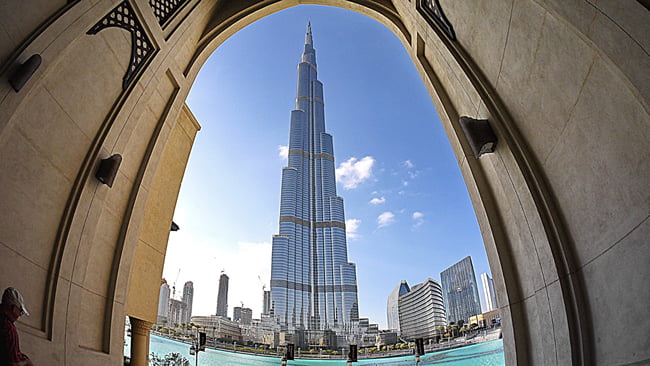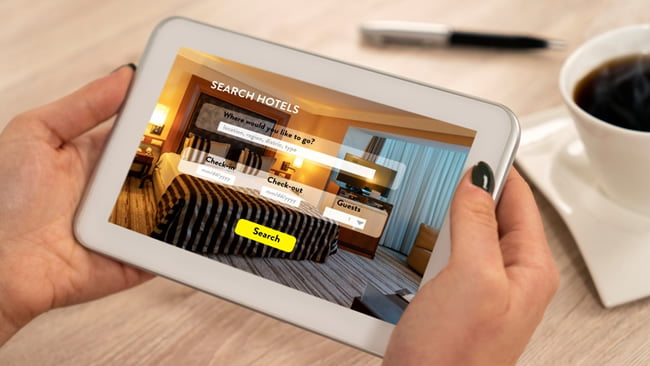Hotel and Tourism Website Translation in the UAE

The United Arab Emirates (UAE) or simply the Emirates, had 1,144 fully operational hotels by the end of 2021. Despite lagging business for the global hotel and tourism industry in 2020 and 2021, this country managed to grow its hotel industry by 5% in 2022. UAE’s tourism economy is predicted to rise to AED 264.5 billion (USD 72 billion) which will be 12.4 % of GDP (Gross Domestic Product) in 2027. This development is not by accident, as the seven Emirates that make up the Emirates Tourism Council have clear visions of where UAE tourism should be heading.
Technology and communication infrastructures are critical foundations in paving the road to successful tourism in the UAE. Statistics show that 99% of the UAE population are internet users and the majority can communicate in English (the lingua franca), Arabic, Hindi, Tagalog, Russian, and French among many other languages. Whether you are a business owner, general manager, marketer, or someone working for any of the tourism agencies, you will benefit from understanding the process of a successful hotel and tourism website translation in the UAE.
The Need for High-Quality Website Translation Services
Have you ever felt frustrated because your computer or mobile browser’s auto-translation doesn’t allow you to fill in a simple booking form? Either the page will default to Arabic (due to your location) or the machine translation (MT) doesn’t make sense at all. Digital roadblocks like these are inexcusable if you are aiming to position your hotel and/or brand in an international hub such as the UAE. When it comes to website translation, never settle for less, ever.
Many high-end luxury hotels have suffered the consequences of a poorly-translated brand name. For example, a popular hotel brand in the UAE was mistakenly translated into the term “pigtail” in Simplified Chinese. Lucky for this brand, the marketing person had an eye for detail and was able to address the issue before the website was published. Any native and highly-experienced translators in the tourism industry won’t commit such a mistake. Moreover, working with a reputable Language Service Provider (LSP) will provide you with a dedicated Localization Project Manager (PM) who will look after your website translation project every step of the way. A “cheaper” option, on the other hand, may easily drop the ball on the translation quality, disappear without a trace, and zero accountability.
Website Translation in the UAE: Top languages to consider
So, you launched your business with an English website first. After 6 months you’ve been seeing good traction and enjoying the organic search engine visibility. “Do I still need to translate my website?” You might be asking this question as you’re “on the fence” about whether the extra investment in your website’s language offerings will be a good move or not.
Well, I cannot answer this question for you. However, let me show you some numbers* and facts to help you make an informed decision:
- The highest number of tourists in the UAE was recorded in 2019 with 38.4 million
- Dubai alone had 7.28 million international tourists in 2021
- The top 5 sources of tourism were: India, Saudi Arabia, Russia, the United Kingdom, and USA
- 26% of these tourists came from MENA and GCC (Arabic-speaking regions)
- 22% from Western-Europe
- 18% from South Asia
- 15% from Eastern Europe
- The top cities where tourists came from: Bangkok, Paris, London, and Singapore
*Source: https://www.globalmediainsight.com
With this data in mind, it’s almost obvious that a business website should at least start in English and Arabic. However, key hotel brands in the UAE have these languages on their websites:
- Arabic
- English
- Chinese
- German
- Russian
- Spanish
- French
Overview of the Website Translation Cost
When venturing into a website translation project for your UAE-based hotel and/or tourism agency, understanding the factors behind the cost will save you from making a rookie mistake – of treating the website translation project as a “one-time purchase”. Your website is most likely dynamic and will need to be regularly updated in all the languages you choose. Many business owners fell into the pit of working directly with freelance translators or even worst, resorting to machine translation (MT) just to save cost.
A website that you expect to be a source or driver of income requires a systematic approach, tools, and quality management across all languages. This process cannot be cut short.

Website Translation Fundamentals
- Source Website Analysis
- Multilingual CMS (Content Management System)
- Defining Translation scope and process for updates
- Subject Matter Training and Research
- Cultural Correctness Assessment
- Glossary & Style Guide Development
- SEO/Keyword Research & Localization
- Translation, Editing, and Proofreading (Transcreation-Copywriting)
- Localization of all Graphics
- Localization of Documents
- Localization of Multimedia
- Basic Online QA & Testing
- Launch Language Versions
Therefore, next time someone tells you that a website translation is as easy as one, two, and three… you will know better. All website translation projects should follow a documented process to ensure adherence to industry standard web localization best practices. And it takes a team (the right team) to do it properly.
Download this free ebook: Steps to Website Translation Success for further information.
Conclusion
Successful website translation projects for hotel and tourism businesses in the UAE require high-quality language adaptation by native-speaking linguists. As international tourists will have plenty of hotels to choose from in the UAE, a well-translated website will set your brand apart from your competitors. When your guests view your website, the language and images should transport to your hotel or resort. The translation of your website content is similar to its original creation, it requires wordsmithing by a native speaker of the target language who specializes in hospitality and marketing translations – the last thing you want is a generic or technical translation, this type of translation will not draw in your customers. Accuracy, sensitivity, and cultural relevance are key aspects to consider, which is why you want to be sure to work with a language service provider that considers all the aspects of your content including suitability to a target region and its culture, the technical aspects of supporting multilingual websites, and the process for translation and updates.
Globalization Partners International has 20 years of language service experience working with key hotel and tourism brands such as the One&Only, Atlantis The Palm, Jumeirah Hotels & Resorts, and InterContinental, to name a few.
